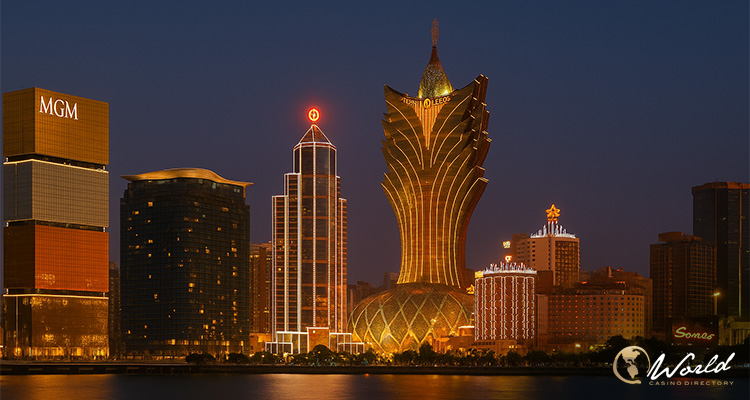For over a decade, whispers of Macau’s vulnerability in the face of emerging Asian gaming markets have circulated through industry publications. Singapore once posed a challenge, followed by Manila. Now, attention shifts to the potential of Japan, Thailand, and the UAE. Despite these growing threats, industry experts suggest that Macau’s position remains unshaken.
Mary Mendoza, a specialist in integrated resort strategy at The Platinum Ltd, emphasized that while other regions may attract attention, they lack the core attributes that underpin Macau’s dominance. Speaking with Macau Business, she noted, “It’s undeniable that these regions will introduce a degree of competition, but Macau’s position as a premier regional gaming hub remains distinct.”
A primary factor in Macau’s continued supremacy lies in its visitor demographics. Over 80 percent of Macau’s gaming income is fueled by patrons from Southern China, supplemented by strong flows from metropolitan areas like Shanghai and Northern China. Mendoza highlighted that this clientele demonstrates both volume and high betting engagement—an essential differentiator.
Comparatively, destinations like South Korea’s Jeju Island and Incheon tend to cater more to Northern Chinese guests, diverging from Macau’s base. Meanwhile, Manila’s growth, while steady, is largely attributed to domestic demand and niche segments such as South Korean business travelers and golf tourists.
Thailand and Japan Enter the Scene
Thailand and Japan are generating buzz with their plans to enter the integrated resort (IR) space. Mendoza acknowledged the potential of these markets to draw attention from the mass and premium mass segments, especially by leveraging demand from nearby countries. However, penetrating the high-end VIP market is a different challenge altogether.
“Whether they will be able to penetrate the VIP segment will be largely contingent upon the expertise and strategic execution of their International Marketing and Player Development teams,” Mendoza said. She stressed that only those with sophisticated execution strategies could expect meaningful inroads into this lucrative sector.
In Thailand, enthusiasm is building rapidly. Deputy Finance Minister Julapun Amornvivat recently confirmed that investment per resort could balloon to as much as THB300 billion (about $9.2 billion)—nearly triple initial projections. With a proposed cap of three to seven entertainment complexes across the country and Bangkok highlighted as a top candidate, major players like Wynn Resorts and MGM Resorts are actively pursuing involvement.
Julapun noted that “there are only about five to seven top-tier global operators in this sector, and they all view Thailand as a promising investment destination.” He emphasized Thailand’s infrastructure, including transit networks and a tourism industry attracting 40 million annual international visitors, as key draws.
Alongside the gaming component, Thailand’s strategy includes collaboration with theme parks, global entertainment providers, and virtual reality innovators. Despite the promise, Julapun insisted that only serious investors need apply, citing strict regulatory frameworks and mandatory visitor registration to curb addiction and illicit activity.
Macau’s Growth Hinges on Strategy, Not Size
While competition brews abroad, Macau continues refining its formula. “For Macau, maintaining its competitive edge hinges on deepening its stronghold in the mainland market while diversifying its outreach to neighbouring countries,” Mendoza explained. Her emphasis on leveraging Macau’s seasoned expertise in integrated resorts suggests a path forward that balances stability and innovation.
This approach appears to be working for some operators. MGM China has notably increased its market share in Macau’s gaming sector, climbing from 9.8 percent at the end of 2019 to 15.9 percent by 2024. Once trailing in sixth place, the company now ranks third. This leap was powered in part by an allotment of 198 new gaming tables during the recent retendering process, as well as early adoption of smart gaming technologies.
MGM’s Acting CFO Vivian Chan noted that the competitive landscape will only intensify in the months ahead. “This year’s competition will be more intense given that there will be more new product offerings in the market, and we will definitely have our own secret weapons to defend against this,” she remarked, referencing the expanding adoption of RFID tables.
Consumer Confidence to Drive Next Wave
Looking ahead, analysts believe that Macau’s success will be increasingly tied to China’s consumer sentiment. CLSA’s Jeffrey Kiang pointed out that while regional competitors like Thailand are evolving, they cater to different traveler profiles. “Thailand looks to be a different gaming market from Macau,” he said, citing visitor mix and average stay length—more than a week in Thailand versus less than two nights in Macau.
Kiang views Chinese discretionary spending as the linchpin for future growth. He tracks indicators like the Hang Seng Index, which has historically aligned with Macau’s gaming revenues. If markets stabilize and property trends in China recover—as predicted for late 2025—Macau could be poised for a 2026 rebound.
While the first quarter of 2025 saw GGR grow a modest 0.6 percent year-over-year, the market has shown resilience, averaging MOP624 million ($77.5 million) daily. Yet Kiang warned that consumer confidence remains historically low, impacting budget-conscious travelers more than premium players.
With non-gaming activities now contributing 15 percent to sector EBITDA, operators are increasingly using them to attract and retain customers. However, hotel capacity remains a constraint, with occupancy near 90 percent across 47,000 available rooms—limiting Macau’s ability to host more overnight guests. In the longer term, Macau’s ability to evolve its offerings—from wellness tourism to IP-branded experiences aimed at younger visitors—could help it maintain market leadership.



